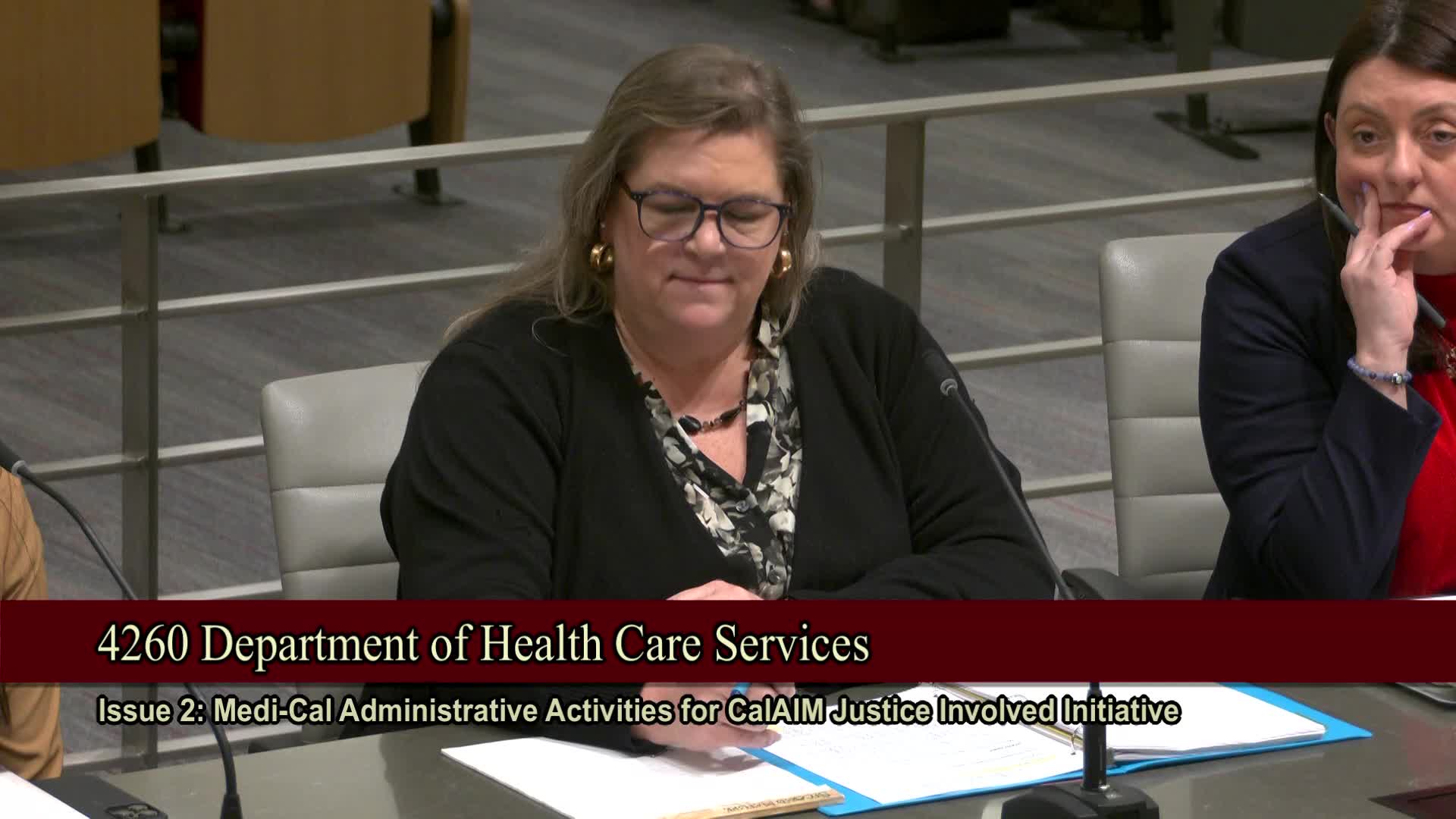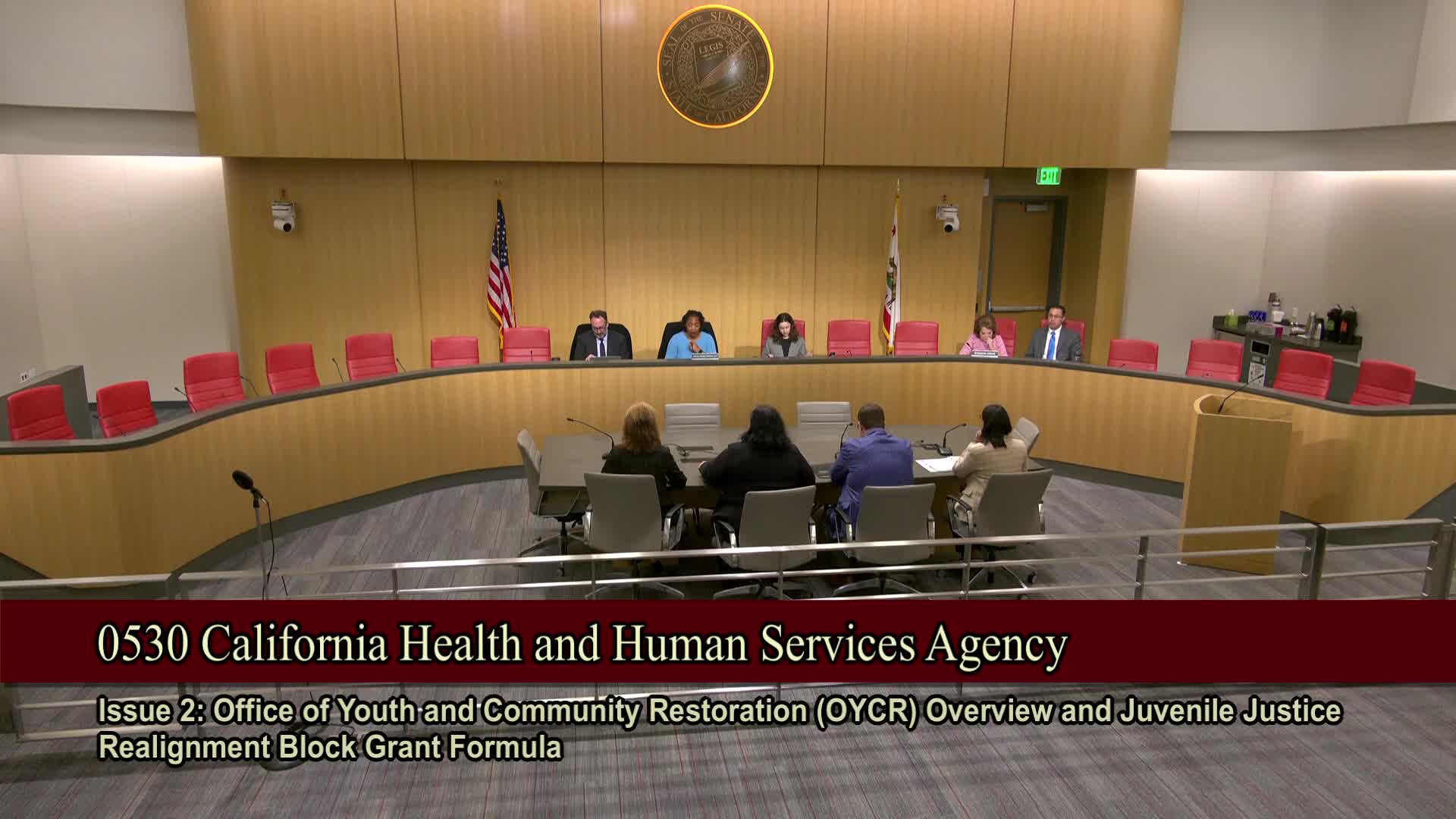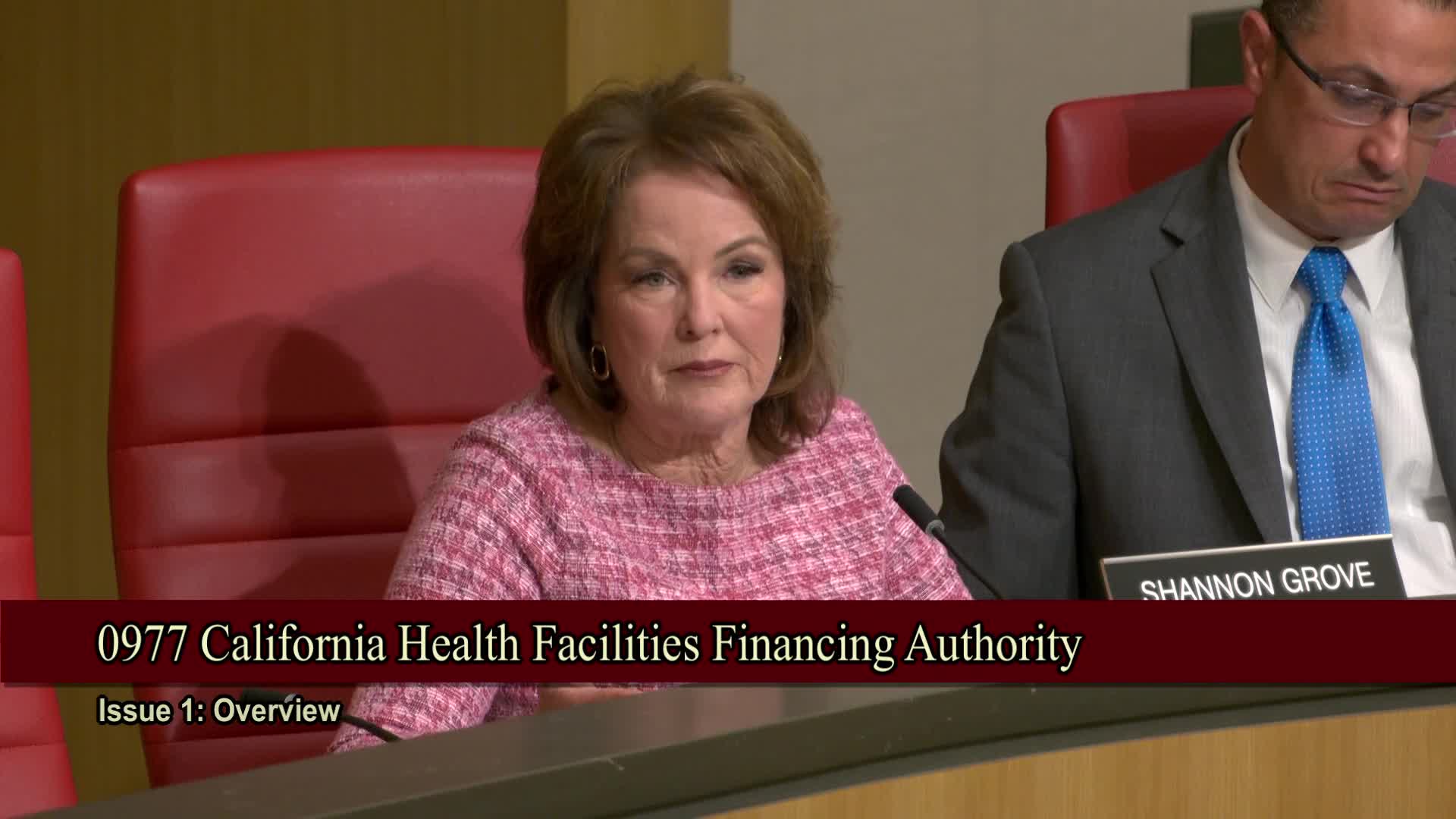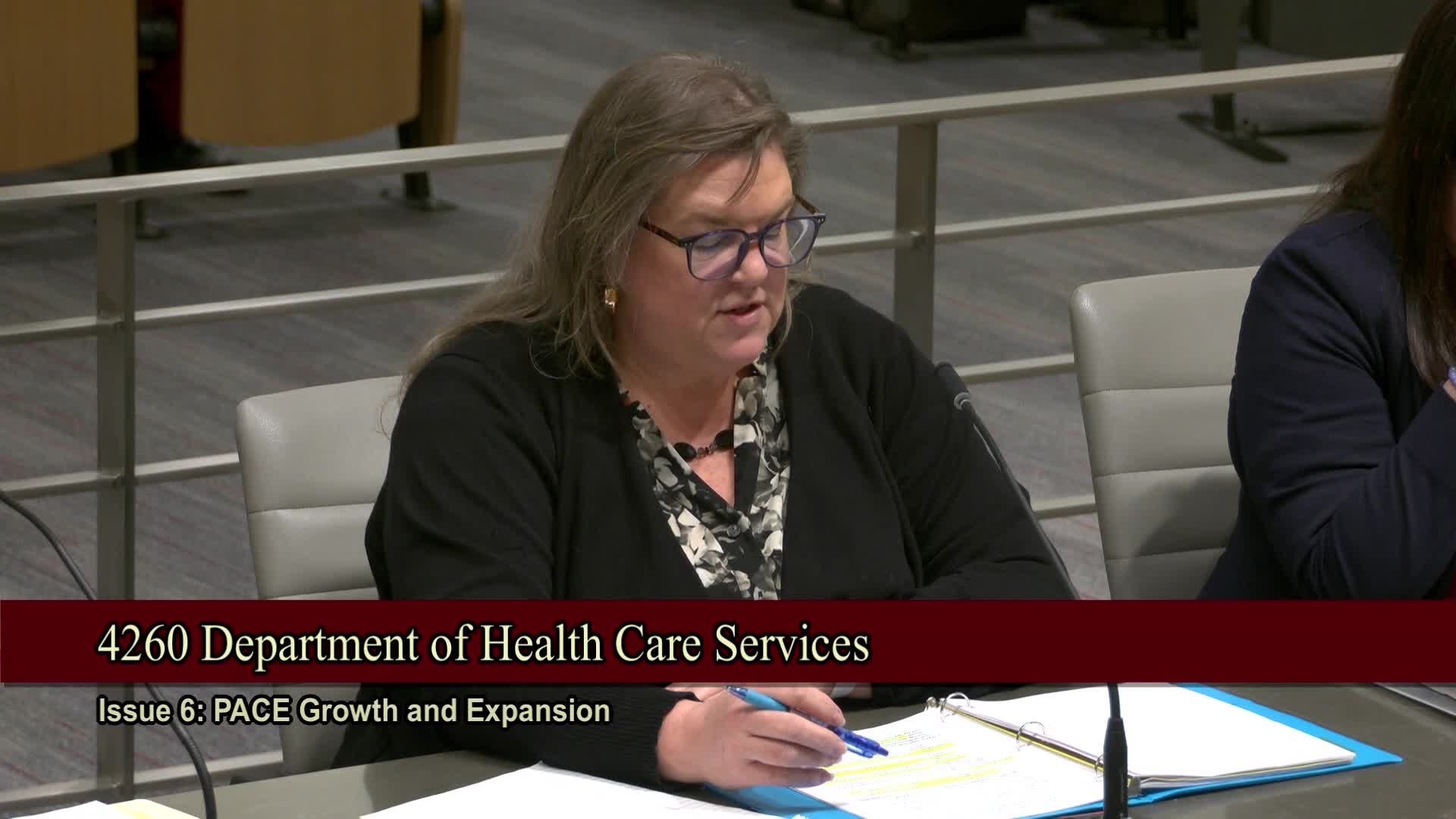Article not found
This article is no longer available. But don't worry—we've gathered other articles that discuss the same topic.

DHCS outlines Medi-Cal budget pressures; seeks reappropriation for Medi-Cal Connect and civil-rights staffing

State juvenile-justice office proposes new realignment formula; lawmakers press for spending transparency

Health facilities authority seeks extended deadline for jail-diversion infrastructure grants

